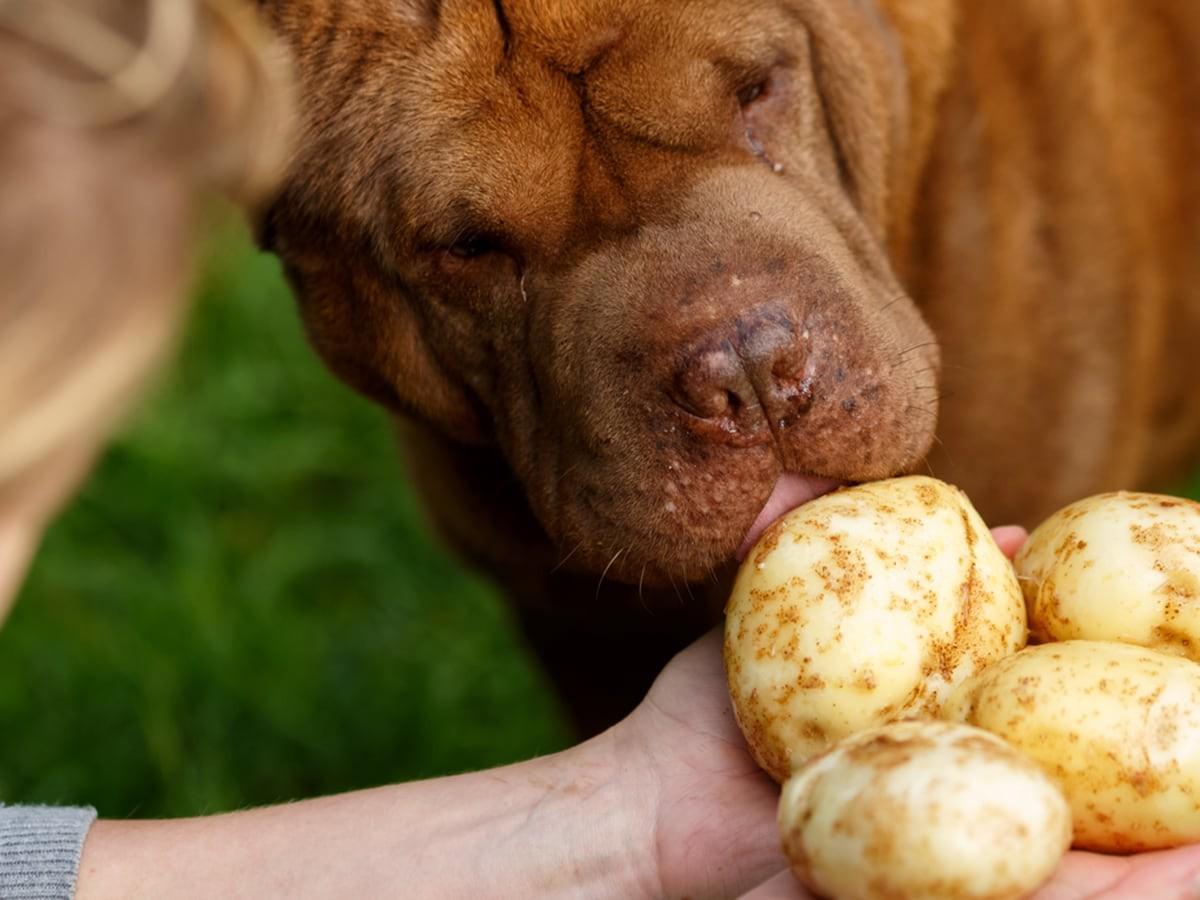Potatoes are a versatile and delicious staple in many human diets, but can our canine companions enjoy them too? The question "Can dogs eat potatoes?" is common among pet owners. The answer is yes but with a few important caveats. Let's delve deeper into the topic of potatoes for dogs, examining the benefits, risks, and how to safely prepare them for your furry friend.
Can Dogs Eat Potatoes?
Yes, dogs can eat potatoes, but only when they are cooked and prepared correctly. Raw potatoes are toxic to dogs due to the presence of solanine, a compound that can cause various health issues.
Can Dogs Have Potato Skins?
It's best to avoid giving your dog potato skins. While not as toxic as raw potatoes, the skins contain oxalates, which can contribute to kidney problems in some dogs, especially if consumed in large quantities.
Should Potatoes Be Raw or Cooked If I Give Them to My Dog?
Cooked potatoes for dogs are the only safe option. Cooking significantly reduces the solanine levels, making them safe for consumption. Choose baked, boiled, or steamed potatoes without any added seasonings, butter, or oil.
Is It Safe to Give My Dog Potatoes?
The safety of potatoes for dogs depends on the preparation and quantity. While cooked potatoes are generally safe, excessive consumption can lead to weight gain due to their carbohydrate content. Dogs with diabetes should avoid potatoes altogether.
Are Cooked Potatoes Good for Dogs?
Yes, cooked potatoes can be a healthy treat for dogs when given in moderation. Mashed, baked, or boiled potatoes are all acceptable options, but avoid fried potatoes or those with added seasonings like butter, salt, or garlic. Remember, potatoes should only be an occasional treat, not a main component of your dog's diet. Their nutritional needs require a balanced diet formulated specifically for dogs.
What Happens If My Dog Eats Potatoes?
If your dog eats a small amount of cooked potato, it's unlikely to cause any harm. However, raw potatoes can be toxic to dogs due to the presence of solanine. If your dog consumes raw potatoes or potato plants, watch for symptoms like gastrointestinal distress, weakness, lethargy, and even neurological problems. Contact your veterinarian immediately if you suspect your dog has eaten raw potatoes.
Why Can't Dogs Eat Mashed Potatoes?
While plain mashed potatoes might seem harmless, they are often prepared with butter, milk, and seasonings that can be harmful to dogs. The high fat content can cause digestive upset or even pancreatitis. Additionally, gravy, often served with mashed potatoes, is high in sodium and fat, making it unsuitable for dogs.
Which is Better for Dogs, Rice or Potatoes?
Both rice and potatoes can be healthy additions to a dog's diet in moderation. However, potatoes offer a higher protein and fiber content compared to rice, making them a potentially more nutritious option.
Conclusion
In conclusion, the answer to the question "Can dogs eat potatoes?" is yes, but with caution. Cooked potatoes, prepared without any added seasonings or fats, can be an occasional treat for your dog. However, avoid raw potatoes and potato skins due to their toxicity. Always prioritize a balanced, veterinarian-approved dog food as the foundation of your pet's diet, and consult your vet if you have any concerns about introducing new foods, including potatoes.

Mostly a tech person, always a pet person. I am dedicated to improving the lives of pets and their humans with technology. Off-duty, I enjoy writing about the misbehaving of computer programs and my two Aussiedoodles, Calvin and Hobbes.
Saylor, April. "Can Dogs Eat Potatoes?" PetMD, 06 October. 2025, https://www.petmd.com/dog/nutrition/can-dogs-eat-potatoes.
Walther, Ricky. "Can Dogs Eat Potatoes? Here’s Everything You Need to Know." Pawlicy Advisor, https://www.pawlicy.com/blog/can-dogs-eat-potatoes.
Stark, Adam. "The Good and Bad of Potatoes for Dogs and Cats." Solid Gold, 23 Mar. 2022, https://solidgoldpet.com/blogs/news/the-good-and-bad-of-potatoes-for-dogs-and-cats
Burke, Anna. “How Many Treats to Give a Dog a Day.” American Kennel Club, 7 Feb. 2023, www.akc.org/expert-advice/nutrition/how-many-treats-can-dog-have/.
The information presented in this article is for educational and informational purposes only and does not constitute or substitute for the advice of your veterinarian.












